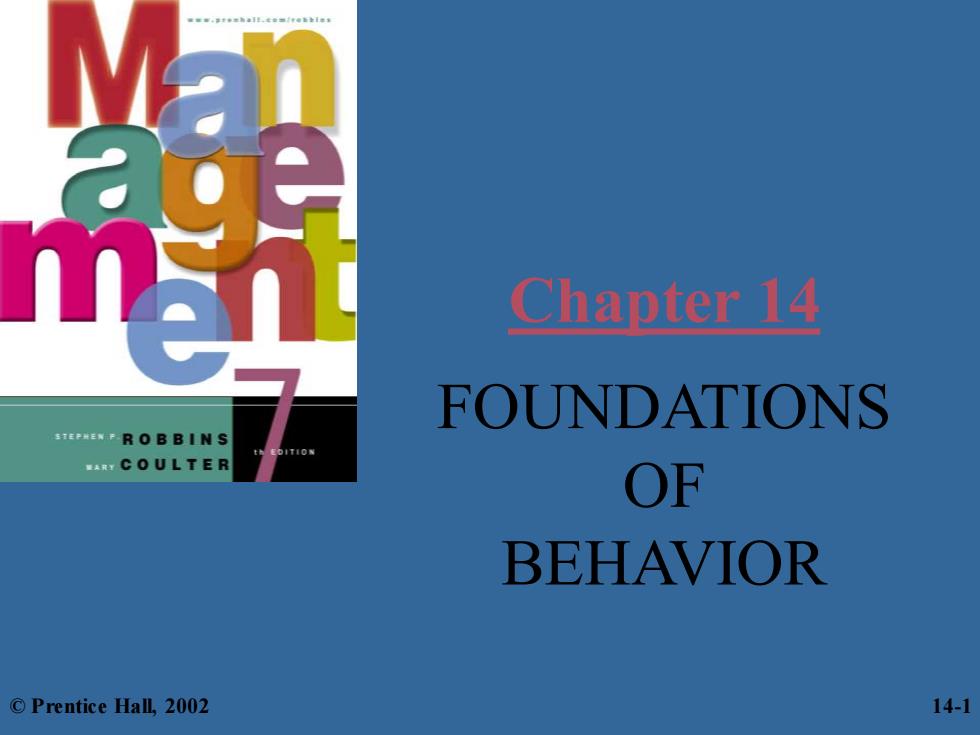
Chapter 14 FOUNDATIONS DROB BI NS ACOULTER OF BEHAVIOR ©Prentice Hall,2002 14-1
Chapter 14 FOUNDATIONS OF BEHAVIOR © Prentice Hall, 2002 14-1
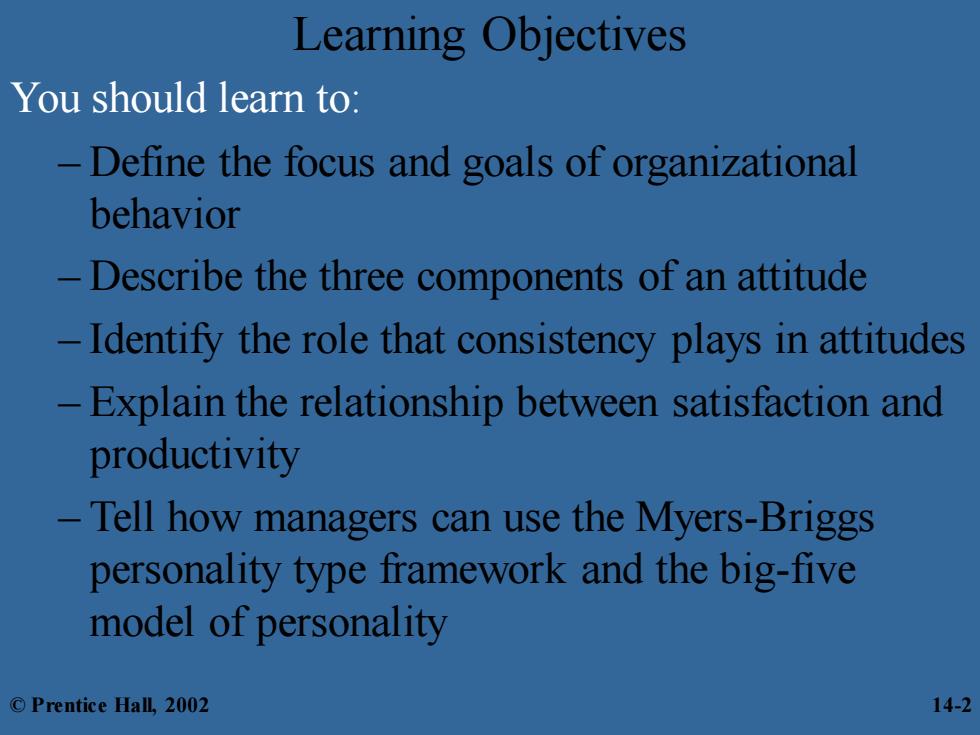
Learning Objectives You should learn to: Define the focus and goals of organizational behavior Describe the three components of an attitude -Identify the role that consistency plays in attitudes Explain the relationship between satisfaction and productivity Tell how managers can use the Myers-Briggs personality type framework and the big-five model of personality ©Prentice Hall,2002 14-2
Learning Objectives You should learn to: – Define the focus and goals of organizational behavior – Describe the three components of an attitude – Identify the role that consistency plays in attitudes – Explain the relationship between satisfaction and productivity – Tell how managers can use the Myers-Briggs personality type framework and the big-five model of personality © Prentice Hall, 2002 14-2
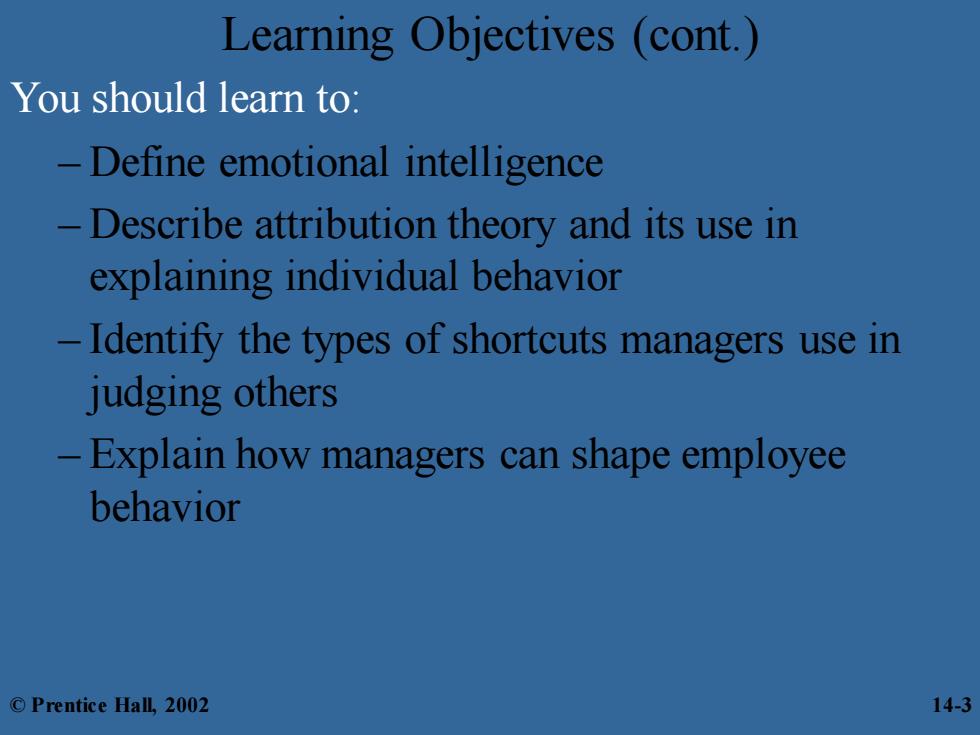
Learning Objectives (cont. You should learn to: Define emotional intelligence Describe attribution theory and its use in explaining individual behavior Identify the types of shortcuts managers use in judging others Explain how managers can shape employee behavior ©Prentice Hall,2002 14-3
Learning Objectives (cont.) You should learn to: – Define emotional intelligence – Describe attribution theory and its use in explaining individual behavior – Identify the types of shortcuts managers use in judging others – Explain how managers can shape employee behavior © Prentice Hall, 2002 14-3
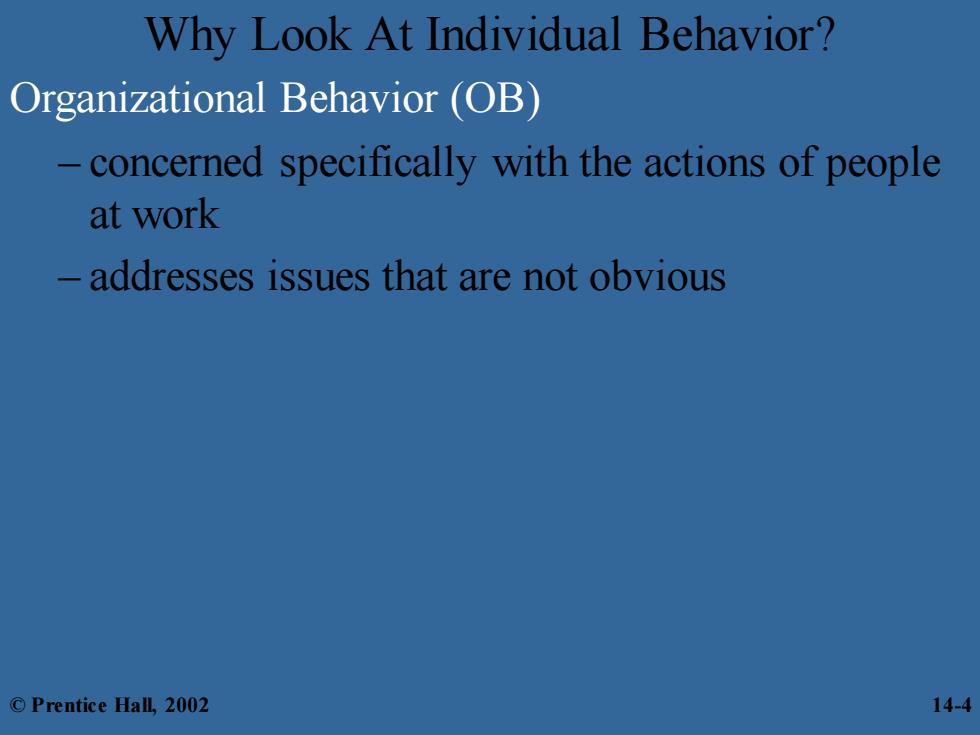
Why Look At Individual Behavior? Organizational Behavior (OB) -concerned specifically with the actions of people at work addresses issues that are not obvious ©Prentice Hall,2002 14-4
Why Look At Individual Behavior? Organizational Behavior (OB) – concerned specifically with the actions of people at work – addresses issues that are not obvious © Prentice Hall, 2002 14-4
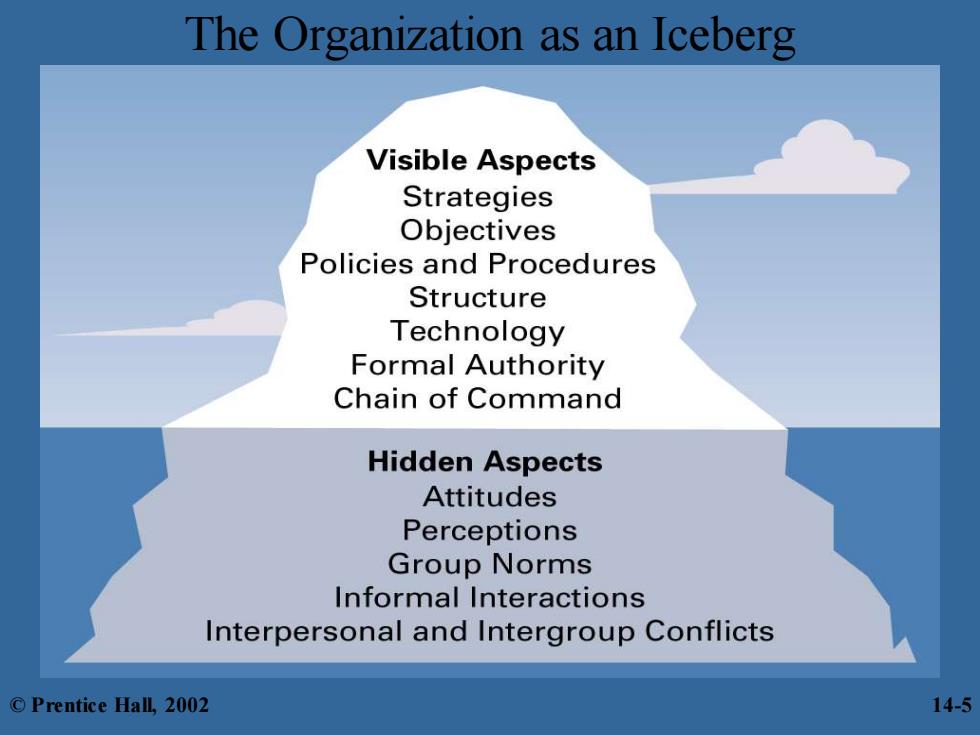
The Organization as an Iceberg Visible Aspects Strategies Objectives Policies and Procedures Structure Technology Formal Authority Chain of Command Hidden Aspects Attitudes Perceptions Group Norms Informal Interactions Interpersonal and Intergroup Conflicts ©Prentice Hall,2002 14-5
The Organization as an Iceberg © Prentice Hall, 2002 14-5